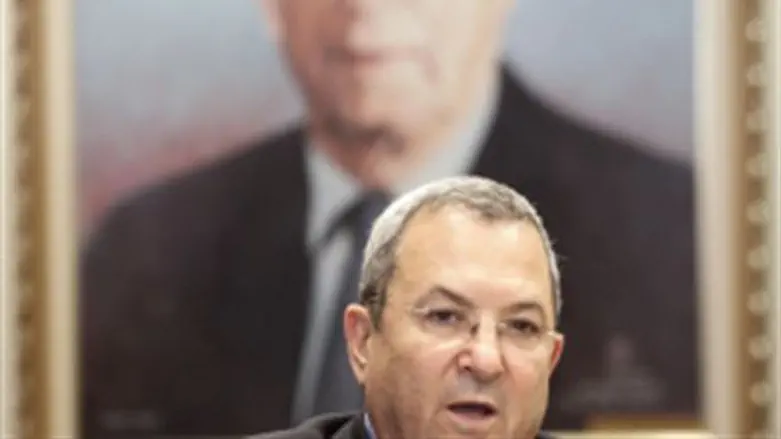
After a decade and a half in which the Israeli Left used hyped-up annual memorials to turn slain Prime Minister Yitzchak Rabin into a hallowed martyr figure, a Knesset member for Rabin's Labor party says this was a mistake. On the 15th anniversary of Rabin's assassination, MK Einat Wilf has asked her party to move Rabin's oversized portrait from its central position on the Labor Knesset faction room wall, and to put back the picture of David Ben-Gurion that hung there previously.
Ben-Gurion was Israel's first prime minister and the head of Mapai, Labor's predecessor. He announced the re-establishment of the State of Israel in 1948, led the country during the War of Independence and was the dominant figure in Israeli politics for decades.
Rabin's portrait hangs between two Israeli flags behind the head of the table, behind the seat that is reserved for the party chairman.
"It is time for the Labor party to stop clinging to what could have been and to cease building up Rabin as a symbol of all the hopes that have been lost,” Wilf said in a Ma'ariv newspaper interview. “I want to place David Ben-Gurion's portrait at the head of the room as is proper for a person who represents the nation's resurgence, and not the picture of the man who symbolizes, for many, missed opportunities.”
Looking at Rabin's and Ben-Gurion's portraits, she said, made her understand what was causing Labor's public standing to slide downward since the 1995 assassination. Labor, she clarified, “identifies him with all that he could have been and did not become. Instead of identifying with a Ben-Gurion-style spirit of action, we identify with an unfulfilled future."
'Let go of the grief'
Wilf said that she has heard this year's anniversary memorial rally at Rabin Square may be the last one, and thinks it may be a good idea to stop holding the rallies, and to motivate Labor toward a new beginning.
"I am not coming out against Rabin,” she stated. “I want to cause the Labor party to let go of the grief, the spirit of decline and the introspection that have characterized it since the murder.”
In the eyes of many nationalists, the Left's extensive campaign to memorialize Rabin have long been seen as being motivated by cynically political aims. Many openly mock the annual memorial day events, and the numerous media and public events that are held as the day draws near, as the “Rabin Festival.”
Rabin is probably Israel's most memorialized prime minister, with numerous streets, roads (including the central super-highway 6 (Kvish Shesh), schools, institutions, a major hospital and an important electricity power plant named after him.
The left-wing establishment's treatment of Rabin's assassination has been a source of alienation for many Israelis, who feel that the Left uses the event to demonize nationalism. Religious Zionist Jews have attested to being collectively blamed and shabbily treated for years after the assassination, which a religious man, Yigal Amir, was convicted of. Media accounts of the lead-up to the assassination have repeated over and again the accusation that Amir's act was inspired by incitement from rabbis and nationalist extremists. However, nationalists reject this claim as unfounded and point out that the main inciter cited by the media – Avishai Raviv, who circulated photo-montages of Rabin in Nazi garb at a nationalist rally – was a Shin Bet agent.
Bar-Ilan University, where Amir studied, outlawed political activity on its campus following the murder – a decision only recently reversed.